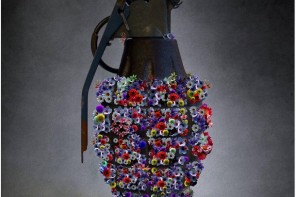The character of Scheherazade from the Arabian Nights does not only represent a beautiful, charming and intelligent woman, but also a woman of great courage, conviction, and willingness to sacrifice for others. These are some of the qualities and characteristics that have made Scheherazade one of the most admired literary characters in Arab culture, and one of the inspirational figures for Arab women attempting to redefine their image and social role in a largely conservative Arab culture. But if Scheherazade managed to keep the king Shahryar from beheading her through her charm and intelligence, that certainly was not enough to keep Lebanese writer and poet Joumana Haddad from killing her. In her book, I Killed Scheherazade: Confessions of an Angry Arab Woman, Joumana Haddad kills Scheherazade not because she dislikes her, in fact she appreciates the qualities that Scheherazade possesses, and she stresses that Arab women should strive to be both charming and intelligent. Haddad kills Scheherazade because of what she claims to be the latter’s willingness to negotiate and compromise with the system of patriarchy, and the parameters that such a precedent sets for any future attempt to improve the status of women in Arab societies. Haddad believes that women should not have to negotiate in order to take what truly is theirs (their freedom), because while negotiation maybe more peaceful, it gives recognition and legitimacy to what she claims to be an otherwise unjust and unnatural patriarchal system.
Haddad believes that Scheherazade despite all her positive qualities that captivated both Arab men and women, caved in implicitly on important matters that would have important repercussions for the future of Arab women. Scheherazade recognized implicitly the role of tradition in maintaining older societal norms, and the idea that any change to tradition, be it in regards to the issue of women or other social issues, has a negative effect on communal identity. Thus the woman continues to be relegated to the “private sphere” (the home), while the man is free to do as he pleases. Scheherazade recognized implicitly that communal conformity through tradition trumps individual dissent. This results in isolation and degradation for any person (especially a woman), that decides to be different, for this person is then considered the exception to the rule. Haddad also discusses the relationship between religion (which she has a very skeptical view of) and the status of Arab women. She maintains that monotheistic religions play an important role in creating and lending support to the patriarchal mentality in Arab societies.
Haddad believes that Arab women in contemporary Arab societies should claim what Scheherazade could not or would not claim, and that is their ability to choose unimpeded and uninterrupted by any external factors. She believes that a woman’s freedom to choose and her control of her own body and mind go hand in hand, meaning that a woman should take the initiative to dress the way she wants, think what she wants, and say what she wants without having to ask for permission from the male patriarch. Haddad’s focus on the body is evident in the fact that she is the creator and editor in chief of “Jasad”, which is often described as a very controversial magazine because it openly deals with issues of the body in ways that may exceed the parameters of acceptability in Arab culture. However to Haddad, the importance of the body doesn’t take away from the importance of nurturing the female mind through education and reading. In the book, she recounts her strong relationship with books and with reading from a very young age.
Haddad’s writing style can be described as straight forward and very direct, and it can also be perceived as excessively harsh and confrontational, but one can also argue that her style is part of her overall message. She killed Scheherazade because she did not like compromises and half-solutions to what she considers to be non-negotiable women’s rights to equality with the man, and to unquestioned freedom of choice. Thus one can either agree or disagree with her views and the style in which she chooses to present them with, but ultimately she does raise many interesting points that are worth pondering on the issue of women in Arab societies.
Crédit photo : Giorgio Pace








